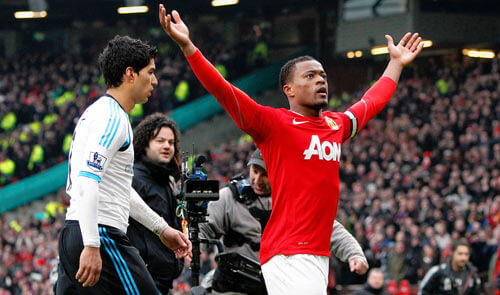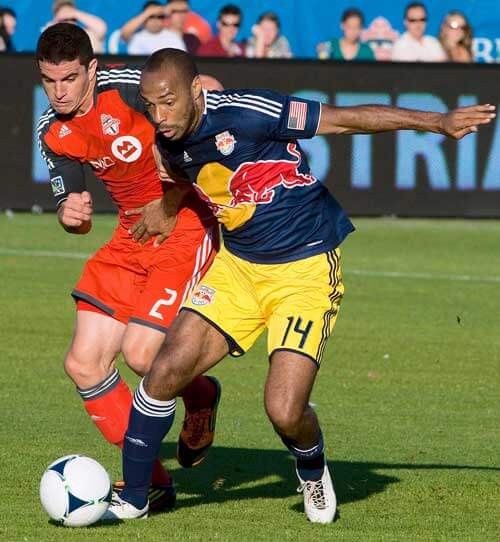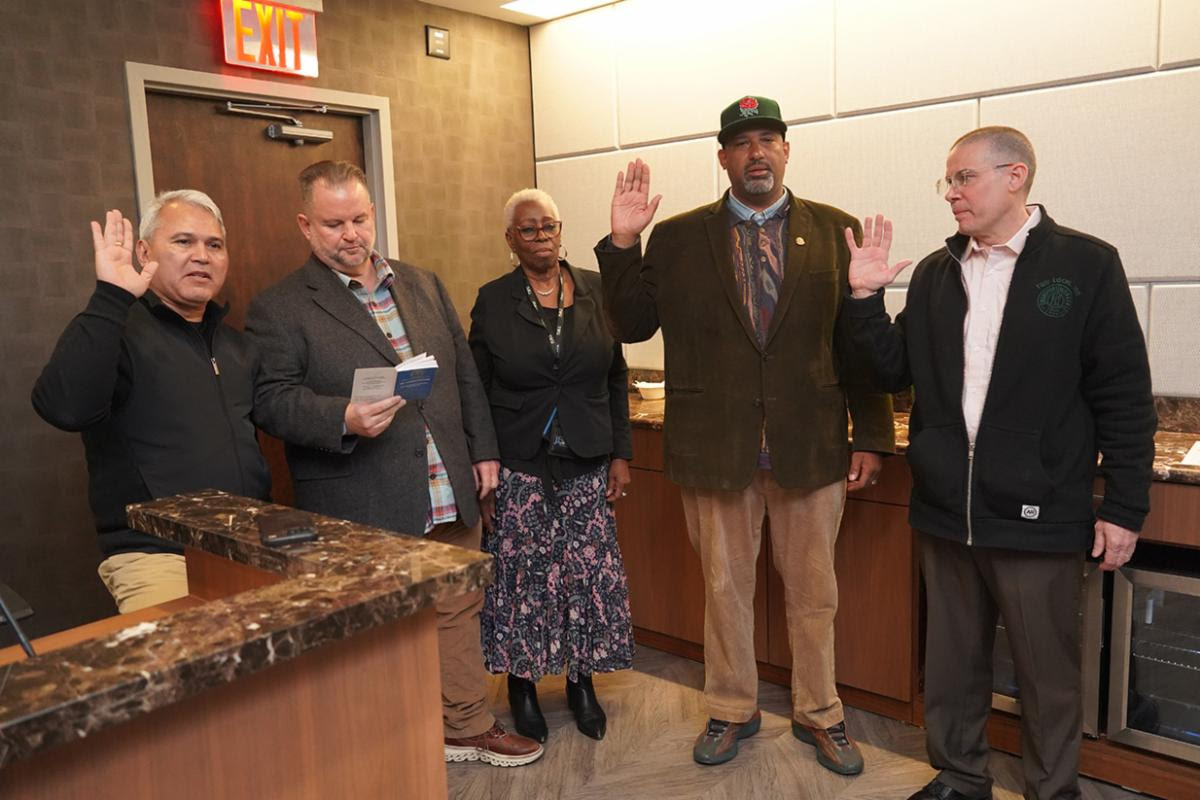The issue of racism in soccer has raised its ugly head again, this time in the English Premier League last Saturday when Uruguayan Luis Saurez, who plays for Liverpool Football Club, failed to shake Patrice Evra’s hand before kick-off of a league encounter against host Manchester United at Old Trafford.
Saurez was playing in his first game for Liverpool after an eight-game ban by the English Football Association for racially abusing Evra, who is Black, during a game between the teams at Liverpool last October. Both players had agreed with their respective coaches to shake hands before Saturday’s game, a customary gesture of good sportsmanship before all soccer games throughout the world, and in this case, an opportunity to put this incident to rest – an incident that embarrassed English football and Liverpool. Instead, Saurez’s refusal to shake hands – even as Evra attempted to – showed disrespect for his manager, the Liverpool Club and the game. More importantly, it was an opportunity lost to support the efforts of many to ‘red-card’ racism in soccer.
What probably brought the issue to this point was the failure of Liverpool Coach Kenny Dalglish and the club, to issue a statement at the time of the initial incident, condemning racism in the game. The statement would have made their position on racism in soccer clear and sent a strong right message to Saurez and the soccer world; instead, Dalglish’s misguided efforts to support his player led to T-shirts being printed with slogans of support for Saurez that were worn by Liverpool players at practice that indicated blind support for the accuser. It was the wrong message sent to Saurez and the soccer world. Liverpool eventually issued a statement condemning the player’s unsportsmanlike conduct last Saturday, and Saurez also issued an apology, eventually, but this was all too late.
Even after Saturday’s game, Dalglish failed to address the issue when confronted by reporters. He claimed that he did not see the no-handshake, but whether he had seen the incident or not, he was aware of the situation and should have issued a statement condemning the player’s unsportsmanlike conduct. Dalglish didn’t seem to grasp the idea that Saurez’s action tarnished the ‘beautiful game’ at a time when players and administrators are expending energy to give racism in soccer the boot. The coach failed to realize that he has a job to defend the game, which allows him to continue to make a very good living, the reputation of Liverpool Football Club, where he played, and English soccer. Racism will not be booted from the game until players, coaches and administrators are relentless in their efforts to do so.
The English Football Association did its part by suspending Suarez after a thorough investigation. It went further recently in stripping Chelsea defender John Terry of the English captaincy because of a pending court appearance by the player to answer charges that he racially abused and another Premiership player, Anton Ferdinand of Queen’s Park rangers, during a game last December. The English – who pride themselves as the modern inventors of the game and who recently condemned FIFA president Sepp Blatter for being complacent in helping to stamp out racism from the game when Blatter misguidedly state that racist remarks could be settled by a handshake – cannot afford to be viewed as complacent in handling these racist incidents in the English game.
Zambia Is African Champion
Zambia defeated Cote d’Ivoire (Ivory Coast) 8-7 in a penalty shootout on Sunday to win its first African Nations Cup championship. The victory was bitter sweet, but more sweet than bitter. The victory came in the city of Libreville, Gabon, where Zambia had experienced its worst defeat in the game; it was in Libreville, where 19 years ago, Zambia’s entire 18-man team perished in a plane crash during its 1994 World Cup qualifying campaign.
After regulation play and extra time in a fairly even game, the score was still tied after the first seven players from each team were perfect in their shots; then in sudden victory situation, Ivory Coast defender Kolo Toure saw his shot saved Zambia goalkeeper Kennedy Mweene, Zambian Rainford Kalaba failed to score the winning penalty. Zambia got another chance to win the shootout when Gervinho of Arsenal FC of the English Premier League missed and Stophira Sunzu ceased the opportunity for his country to win its first Nations Cup.
All reports indicated that both teams squandered opportunities, the most glaring was Didier Drogba’s missed penalty in regulation that would have given Ivory Coast a 1-0 lead. It was Drogba, the Chelsea FC (England) player, who scored two goals in his team’s 3-0 defeat of Mali in the semifinal. Instead – after an undefeated run through the previous five games of the finals, during which it did not concede a goal – the Elephants missed the opportunity to win its first Nations Cup since 1992. In the third place game, Cheick Diabate, who plays for Bordeaux of French League, scored twice to lead Mali over Ghana, 2-0, to secure third place.

























